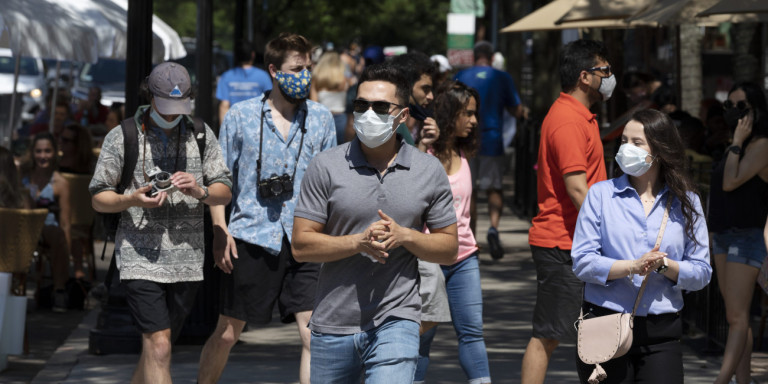Vaccines offer a natural way to protect against possible infection by pathogens, taking advantage of the mechanisms of acquired immunity. To be precise, vaccines train the immune system to deal with invaders early before they cause a major problem. However, no vaccine can offer 100% protection to all people, as stated by the professors of the Medical School of the National and Kapodistrian University of Athens, Gikas Majorkinis and Thanos Dimopoulos (rector of EKPA).
Why is this happening;
Professors note that on the one hand not all people can build an immune response with the same effectiveness on the other hand any immune response is finite in its power. Just as an army can deal with a finite number of invaders at one time, so too can the immune system deal with a finite number of viruses at one time. In any case, the chance of a successful virus invasion may not be zero but it is dramatically reduced by vaccination.
How reduced are these chances with current SARS-CoV-2 vaccines?
The chance of someone becoming infected after exposure to the virus 14 days after receiving both doses of the vaccines available in Greece is up to three times lower than if they had not been vaccinated. Then, after a vaccinated person becomes infected, the chances of getting seriously ill are reduced by eight times compared to if they had not been vaccinated. In practice, this translates to the vaccinated being at a much lower chance of ending up in hospital, ICU or dying from the virus infection.
Lately, there have been examples of people being vaccinated but catching the virus. Does this mean that the vaccines have lost their effect on the new strains or that the vaccines do not offer protection?
Teachers reiterate that vaccines reduce the chance of someone becoming infected but do not eliminate them. Thus, in a population that is 70% fully vaccinated and given that the chance of infection decreases three times as a result of vaccination, we normally expect 40% of diagnoses to be vaccinated and 60% to be unvaccinated.
So what was the vaccination contribution in this case?
First, in this example, if the vaccine had not been given, the number of cases would have been at least three times higher (not taking into account that vaccinated people are much less likely to transmit the virus when they become infected, so the number of cases would be much higher). if the vaccination had not been given). This is, therefore, a dramatic reduction in the number of cases in the first place. In addition, this 40% of those who are infected are, however, significantly less likely to become seriously ill, so very few of them will be taken to hospitals, Intensive Care Units or end up.
In any case, however, it should be understood that the immune response, even from the most potent vaccine, is finite. Therefore, constant exposure to high viral loads, ie very high risk contacts, can lead to infection even in those who are fully vaccinated with a strong immune response. For this reason, the two teachers conclude, those vaccinated in very high-risk activities should maintain the measures of personal protection and personal hygiene, especially when it comes to vulnerable groups.
Source: ΑΠΕ- ΜΠΕ
